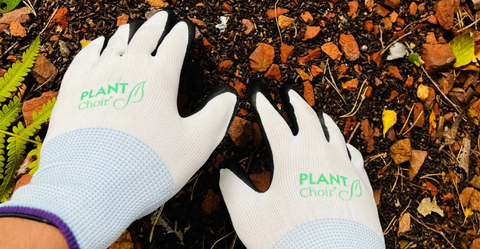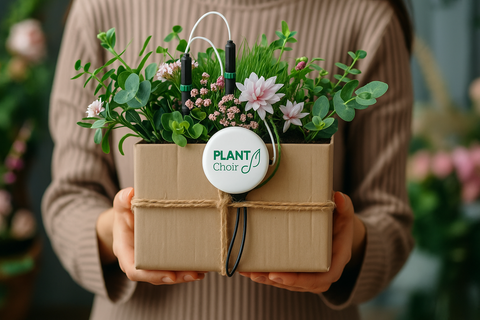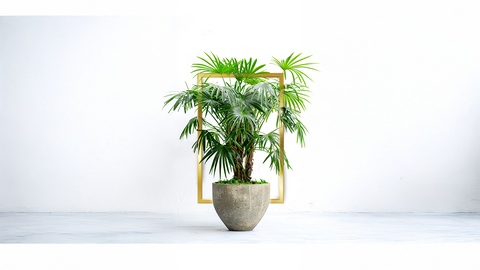On National Recycling Day on November 15, small acts can reshape daily life. Composting is one of the simplest. When you recycle kitchen scraps into living soil, you nurture a tiny world that quietly supports your plants. As microbial life flourishes, roots find balance. Plants often display steadier, more expressive bio-signals that you can turn into sound with PlantChoir, a Bluetooth biofeedback device and app that lets you listen to plant music in real time. This is your bridge from sustainability to serenity. This is compost to calm.
Why National Recycling Day belongs in your plant corner
National Recycling Day arrives each year on November 15. The United States Environmental Protection Agency highlights the date to encourage circular habits at home. According to the EPA, America Recycles Day recognizes the value of recycling and supports the national goal to increase the U.S. recycling rate. Composting your scraps is one of the most accessible ways to participate from a kitchen counter or an apartment balcony.
Composting returns nutrients to the soil and invites microbial life to move in. That living soil helps houseplants regulate water, use minerals more effectively, and handle minor stress without drama. When roots are calm and well supplied, the plant’s electrical behavior often appears more steady and patterned. With PlantChoir attached, those patterns become gentle tones that you can enjoy during journaling, stretching, or end-of-day wind down. We avoid medical claims. We simply note that many users report that the music supports relaxation and focus in everyday life.
The living orchestra under your pots
Soil microbes are the rhythm section
Healthy soil is not just dirt. It is an ecosystem filled with bacteria, fungi, and other organisms that decompose, cycle nutrients, and support roots. In researches that summarize soil microbiomes, scientists describe benefits that include improved nutrient efficiency, better stress tolerance, and overall plant vigor. According to open access reviews, cultivating microbial diversity is a promising strategy for resilient plant health.
Roots speak with exudates and microbes answer
Roots release exudates. These are small packets of sugars, amino acids, and signaling compounds that feed and shape microbial communities around each root tip. According to an Annual Review of Plant Biology article, root exudation is dynamic and strongly influenced by the environment and plant biology. The result is a two way conversation that guides nutrient flow and water balance. Those shifts travel through the plant and appear as changes in bio-electrical activity at the leaf and stem.
Electrical signals are the plant’s inner timing
Plants constantly generate electrical activity. Researchers describe fast action potentials and slower variation or wave potentials that coordinate responses to light, water, and touch. According to an editorial in Frontiers in Plant Science, electrical signals in leaves mirror health and support rapid adaptive responses. In research compiled in that editorial, signals often change before we notice anything with our eyes. For listeners using PlantChoir, that means the soundtrack can shift well ahead of visible cues.
Microbes meet music through electrochemistry
Roots and microbes do more than share nutrients. They also create measurable electrochemical activity in the soil. According to Washington State University research news, engineers and plant scientists are decoding electrical signals in soils that relate to microbial processes and root activity. In researches at WSU, measuring current from microbes has been proposed as a way to read soil vitality. This aligns with the idea that richer soil life can lead to more expressive plant signals at the surface where PlantChoir listens.
Compost to Calm on November 15
Use National Recycling Day as your kickoff. The goal is simple. Close the loop in your kitchen. Feed living soil. Then listen.
Step 1. Start a countertop caddy
-
Use a lidded container for coffee grounds, tea leaves, veggie peels, eggshells, and herb stems
-
Add a handful of browns such as dry leaves or ripped cardboard to balance moisture
-
If backyard composting is not possible, search for city green bin programs or a neighborhood drop off
Step 2. Seed your soil with life
-
Top dress indoor plants with one to two centimeters of finished compost every three to four months
-
For repotting, blend ten to twenty percent compost into a chunky, well drained mix
-
Avoid heavy synthetic salt buildup that can stress roots and flatten signals
Step 3. Pair plant care with listening care
-
Clip PlantChoir to a mature leaf with clean tissue
-
Record ten minutes before watering
-
Record again thirty to sixty minutes after watering
-
Note the change in mood and spacing of notes in your listening log
-
Repeat at the same time of day for a week and see how the pattern evolves
Step 4. Keep signals steady
-
Water evenly and avoid big swings between drought and saturation
-
Reduce leaf movement by placing plants away from strong vents and frequent traffic
-
Wipe contact points before each session for clean conductivity
-
Explore different musical scales to find a tone that supports your routine
Soil alive blends for a calmer soundtrack
Aroids such as monstera, philodendron, and pothos
-
Mix sixty percent potting soil, twenty percent finished compost, and twenty percent aeration such as orchid bark or perlite
-
Top dress lightly and refresh quarterly
-
Try a soft pad with a D major pentatonic scale for flowing daylight listening
Drought tolerant icons such as snake plant, ZZ, and succulents
-
Mix fifty percent cactus blend, ten percent compost, and forty percent pumice or perlite
-
Water deeply and allow the top two to three centimeters to dry before repeating
-
Try plucked strings with an Aeolian or natural minor scale for slow spacious tones
Culinary herbs such as basil, mint, and rosemary
-
Mix fifty percent potting soil, twenty five percent compost, and twenty five percent perlite
-
Provide bright light and keep the medium evenly moist
-
Try handpan with a C major scale for sunny kitchen sessions
Gentle science that meets everyday life
-
According to Dr. Vladimir Sukhov in Frontiers in Plant Science, electrical signals in leaves reflect health and support fast adaptive responses. In researches collected in that editorial, electrical patterns often shift ahead of visible changes. This is helpful for noninvasive sensing that becomes sound with PlantChoir.
-
According to the Annual Review of Plant Biology, root exudation is shaped by the environment and plant biology. In researches on exudates, microbes respond to root signals which then influence water relations and nutrient dynamics that affect plant bio-signals.
-
According to open access reviews of soil microbiomes, diverse microbial communities are linked with improved nutrient efficiency, stress tolerance, and overall plant health. In researches that survey field and lab studies, a living soil community is a practical target for home gardeners.
-
According to Washington State University research updates, engineers and plant scientists are decoding electrochemical signals associated with soil health. In researches from the same group, measuring microbial current offers a window into what is happening around roots.
We take care to keep language observational. We do not claim that PlantChoir treats any condition. Many people simply describe feeling calmer and more focused while listening.
PlantChoir setup tips for strong signals
-
Choose a healthy, mature leaf or a flexible petiole
-
Clip the gold plated contacts gently and ensure clean contact
-
Position the plant away from direct drafts and heavy vibration
-
Try major pentatonic for bright moods, Dorian for contemplative moods, or Aeolian for quiet evenings
-
Assign up to four instruments per plant so each one has a distinct voice
-
Record short sessions and capture context such as time, light, and watering in a note

Specs refresher
Enhanced sensor with approximately 1500 percent higher resolution. Gold plated connectors. Bluetooth biofeedback to the app. Forty instruments and eight scales. Up to four instruments per plant with presets. Portable and water resistant. Battery life around four to six weeks. Record and share with no subscription
Your National Recycling Day checklist
-
Start a small compost caddy today
-
Top dress two plants with finished compost
-
Record a before and after watering session with PlantChoir
-
Share a thirty second clip with a friend who could use a mindful pause
Small loops can lead to big calm.
Composting keeps peels and grounds out of the landfill and turns them into life. That life feeds the soil. Healthy soil supports steady roots. Steady roots create stable bio-signals that translate into gentle music through PlantChoir. On National Recycling Day, let your compost become a chorus. Let your plants sing you into the evening.
Give your plants a voice and try PlantChoir today.
Set up your first listening session in minutes and start a simple compost ritual that supports the sound.
Setup Tutorial: Clips, Soil Probes, and Wet Gels
Use Cases at Home, Yoga, and Events
External sources
-
According to the U.S. EPA America Recycles Day page, November 15 highlights actions that support circularity and resource conservation.
-
According to Frontiers in Plant Science, electrical signals in leaves mirror plant health and support rapid adaptive responses.
-
According to the Annual Review of Plant Biology, environmental and biological drivers shape root exudation and the root soil interface.
-
According to Washington State University news, researchers are decoding electrochemical soil signals that relate to microbial and root processes.
-
In researches that survey soil microbiomes, diverse communities are linked with improved plant performance and resilience.




